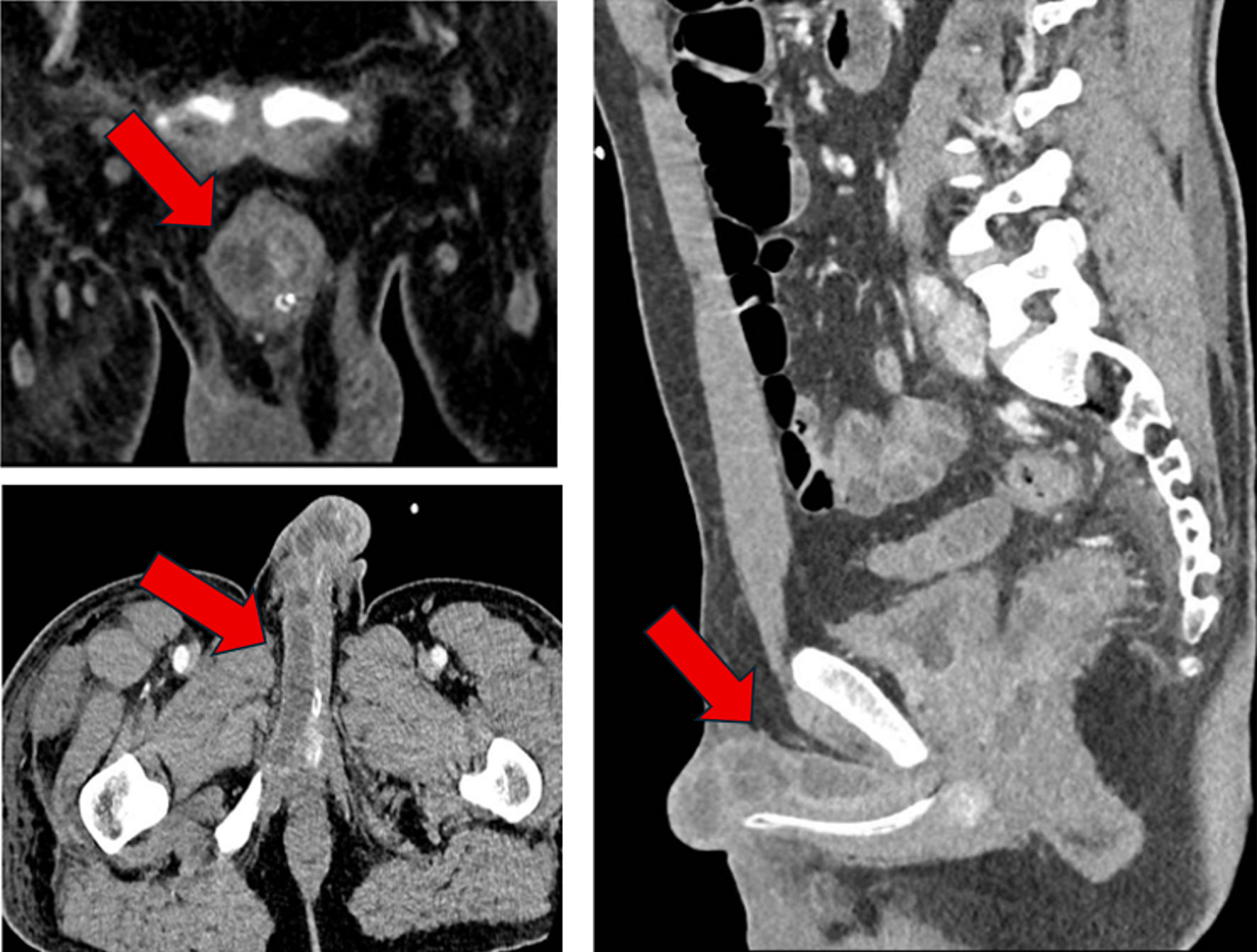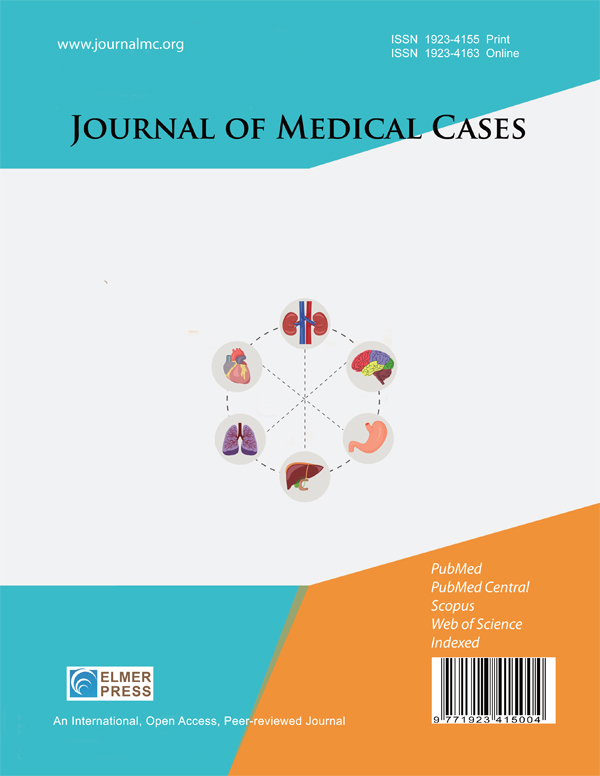A Forty-Three-Year-Old Male With Penile and Cavernous Metastases From Rectal Cancer
DOI:
https://doi.org/10.14740/jmc5181Keywords:
Penile metastasis, Corpora cavernosa, Rectal cancer, PharmacogeneticsAbstract
Metastasis to the cavernous bodies from colorectal cancer (CRC) is an exceptionally rare condition, typically associated with systemic dissemination and an ominous prognosis. It often presents synchronously with liver and lymph node involvement. A 43-year-old male presented with perineal pain, rectal bleeding, and urinary obstructive symptoms. Imaging studies revealed a KRAS-mutated rectal adenocarcinoma, classified as stage IV, with synchronous metastases to the cavernous bodies and liver. Treatment was initiated with FOLFOXIRI (folinic acid, 5-fluorouracil, oxaliplatin and irinotecan) chemotherapy but was discontinued due to tumor lysis syndrome and toxicity linked to a UGT1A1 mutation. Despite modified FOLFOX (folinic acid, fluorouracil, oxaliplatin) plus bevacizumab, the disease progressed rapidly, prompting transition to palliative care and subsequent death. Cavernous body involvement in CRC reflects advanced disease, frequently accompanied by synchronous metastases and a limited life expectancy. This case underscores the poor prognostic significance of such metastases, suggests pelvic lymphatic spread as a likely mechanism, and highlights the critical impact of pharmacogenetics on treatment tolerance and outcomes. A review of the literature emphasizes the aggressive biology of such presentations. Penile metastases from CRC are rare but devastating, indicating disseminated disease. Multidisciplinary management should prioritize symptom control, with targeted therapies reserved for select cases. This case illustrates the need for heightened clinical suspicion in patients with a history of malignancy presenting with urological symptoms.

Published
Issue
Section
License
Copyright (c) 2025 The authors

This work is licensed under a Creative Commons Attribution-NonCommercial 4.0 International License.









